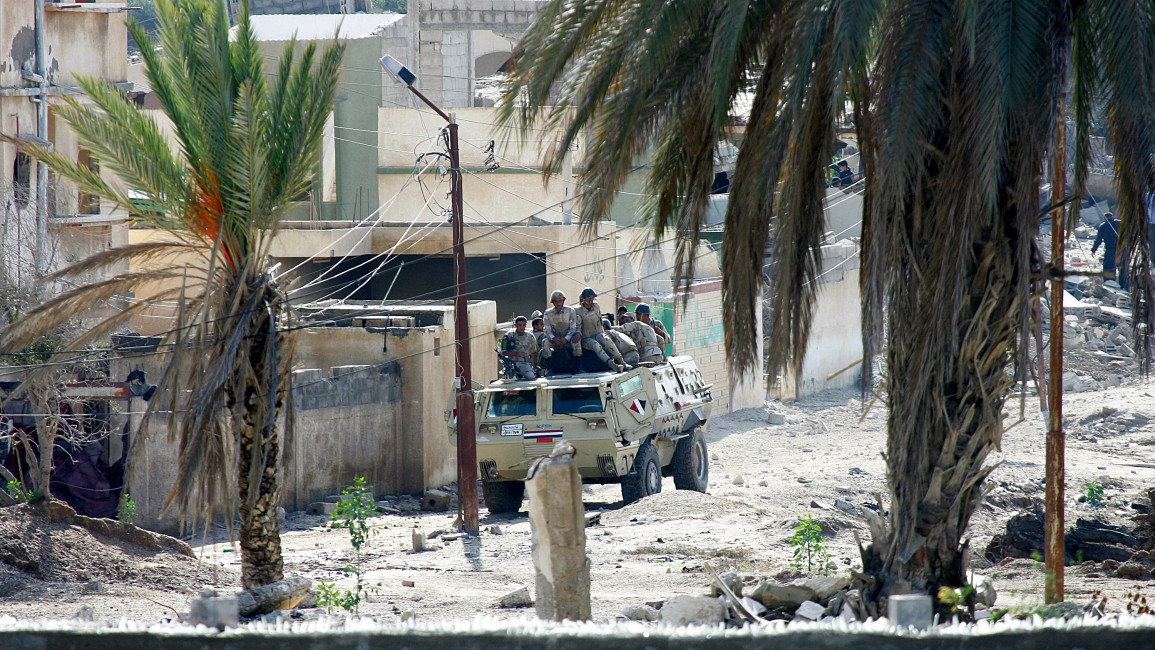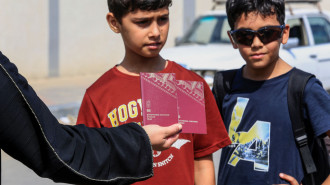‘Welcome to City of Sisi': Egypt's Rafah residents claim new city is named after president
Several signboards of a city under construction named after Egypt's President Abdel-Fattah al-Sisi were reportedly seen on Monday by the residents of Rafah City in the once-restive northeastern North Sinai province.
Local sources told Al-Araby Al-Jadeed, the sister company of The New Arab, that a Sinai-based construction company owned by powerful businessman Ibrahim El-Argany is tasked with the project.
Signposts have been installed on roads leading to what the sources described as a new "developmental gathering" in Al-Arjaa, east of Rafah, carrying the phrase: "Welcome to the City of Sisi."
In November last year, the Union of Sinai Tribes, led by Argany, also known for his strong ties to the regime, laid the foundation stone of a new city named Al-Arjaa east of Rafah, in the presence of North Sinai Governor Abdel Fadeel Shousha and Prime Minister Mostafa Madbouly and senior army officers.
The tribal group is known for having paramilitary militias that have been fighting alongside the army against insurgency in North Sinai for almost a decade.
Whether the two references are to the same area in Egypt's eastern Rafah City remains unclear.
An IS-linked insurgency has raged for years in Sinai, intensified after a 2013 military coup led by Sisi against his predecessor, Mohammed Morsi of the Muslim Brotherhood.
During that time, the Sinai Bedouin had reportedly been forcibly evicted from their lands, mainly from the border towns of Rafah and Sheikh Zuweid.
Back then, the army promised the residents, whether displaced inside Sinai or moved to nearby provinces, a safe return as well as compensation, but the locals claimed they had been misled.
In 2012, the then-defence minister Sisi issued Law 203 banning the private ownership, rental, and use of almost all land within five kilometres west of the border with Gaza and Israel, except for the town of Rafah, "for national security reasons."
Two years later, the Egyptian army began establishing a 79-kilometre-buffer zone in the far northeast of the Sinai Peninsula along the border with the Palestinian Gaza Strip, separating the Palestinian section of Rafah in the east and the Egyptian section in the west in a bid to stop the influx of militants and the smuggling of arms from Hamas-controlled strip.
Both the Egyptian side and the Palestinian one are called Rafah City, split by the Rafah Border Crossing through which aid and relief efforts flow into Gaza, being the enclave's only connection to the outside world.
Gaza has been under a deadly Israeli onslaught since 7 October last year, which claimed the lives of over 34,000 Palestinians, most of them women and children.




 Follow the Middle East's top stories in English at The New Arab on Google News
Follow the Middle East's top stories in English at The New Arab on Google News
![People gathered around the rubble of destroyed houses to search for survivors [Getty]](/sites/default/files/styles/image_330x185/public/2024-11/GettyImages-2184733820.jpg?h=199d8c1f&itok=NiM1LO2f)

